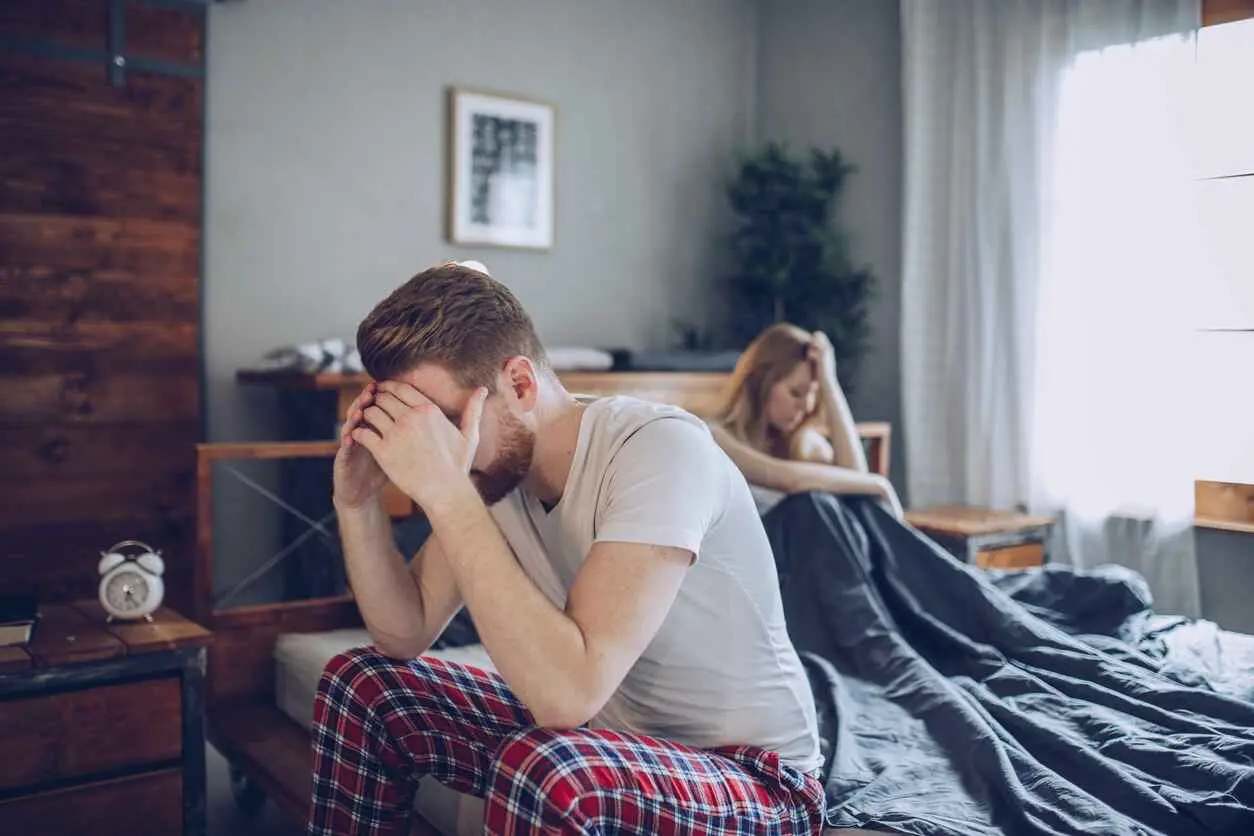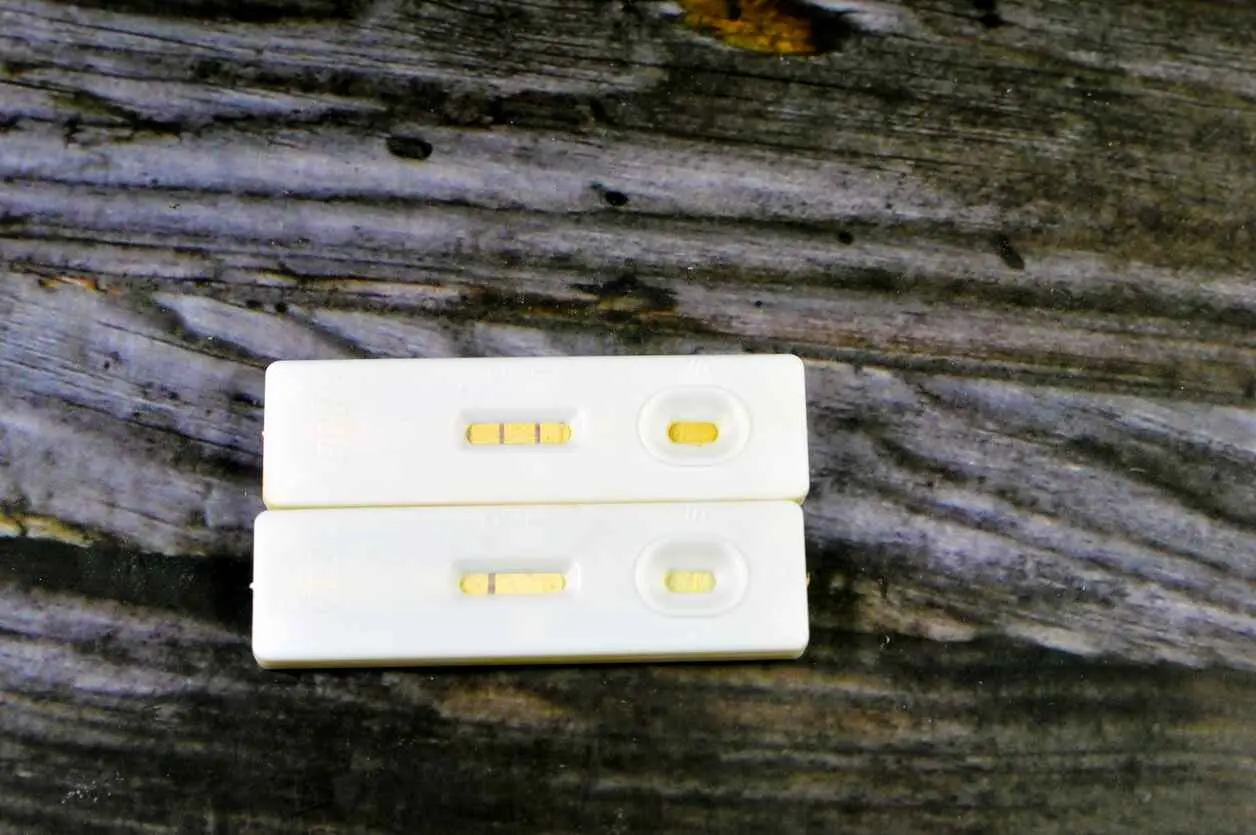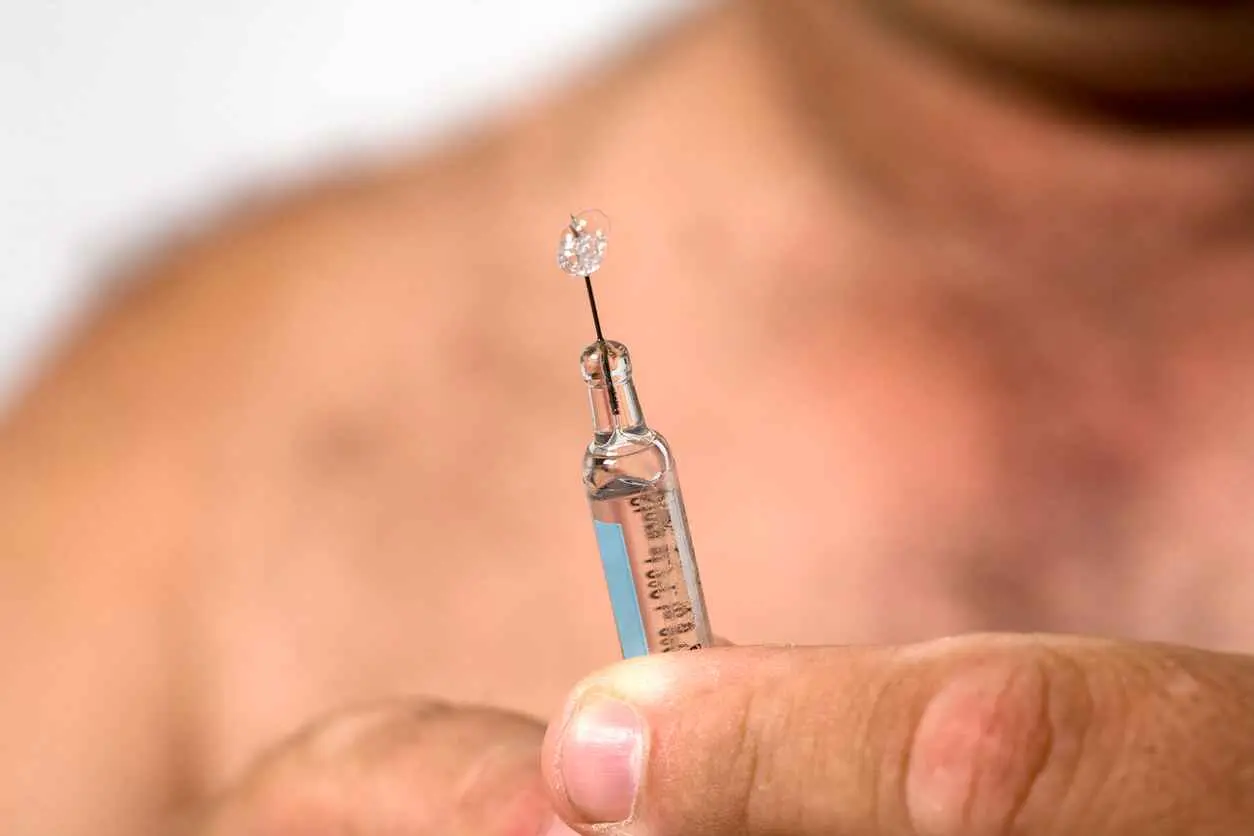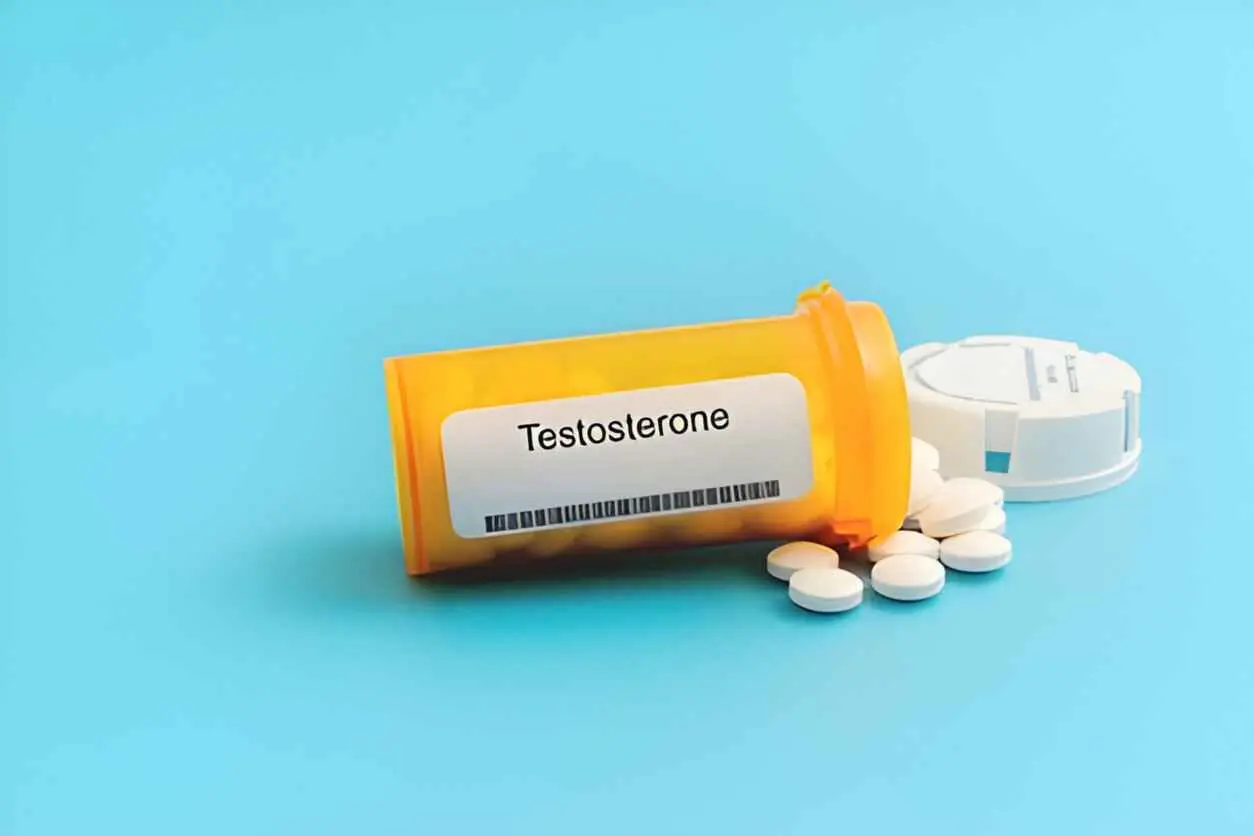
TRT & The Male Sex Drive
TRT & The Male Sex Drive
Does TRT Improve Male Sex Drive?
Testosterone replacement therapy (TRT) can restore libido in men with clinically low testosterone by raising hormone levels back to the normal range. Improvements in sex drive often appear within weeks, but full benefits can take 3–6 months, depending on age, health, and cause of low libido.
As men get older, many notice changes in how they feel—less energy, lower mood, and a drop in their interest in sex. For some, these changes come slowly. For others, they are suddenly confused. One of the primary reasons behind this shift is a decline in the hormone testosterone.
Testosterone is the primary male sex hormone. It plays a significant role in things like building muscle, keeping your mood stable, and keeping your sex drive healthy. When testosterone levels get too low, men may feel tired, lose strength, and find that their desire for sex fades. This can be frustrating and difficult to discuss, even with a doctor.
That’s where Testosterone Replacement Therapy (TRT) comes in. TRT is a medical treatment that helps raise low testosterone levels back to normal. Many men say it helps them feel more like themselves again—more energy, better mood, and more substantial interest in sex. However, it’s not a quick fix for everyone, and there are risks to consider as well.
In this blog, we’ll explore what causes low testosterone, how it affects a man’s sex drive, and whether TRT is the right choice for those who want to get it back.
What Is Testosterone and Why Does It Matter
Testosterone is a hormone made mainly in a man’s testicles. Hormones are like tiny messengers in the body that help control various bodily functions. Testosterone is essential for men. It helps boys grow into men during puberty—by deepening their voice, growing facial and body hair, building muscle, and allowing the body to mature.
But testosterone doesn’t stop being important after puberty. It performs many functions in the human body. It helps keep bones strong, builds muscle, maintains energy levels, and supports a healthy mood. Most importantly, it plays a big role in a man’s sex drive, also called libido—that’s the desire to have sex or feel close to someone.
As men age, their testosterone levels gradually decline. This usually begins around age 30. For some men, this drop doesn’t cause any problems. But for others, it can lead to feeling tired, sad, weak, or not interested in sex like they used to be.
This condition is often called “low testosterone” or “low T”. It can affect not just the body, but also a man’s confidence and relationships. That’s why understanding testosterone is so important—especially if you or someone you know is feeling different and doesn’t know why.
Decreased Libido (Sex Drive) Or Erectile Dysfunction?
While many men deal with erectile dysfunction (ED), which means having trouble getting or keeping an erection, having a low sex drive is different.
Men with ED usually want to have sex but find they can't get an erection when they need to.
Sometimes, they might get an erection that's not strong enough for sex. These men want to have sex but can't because of physical issues.
If this sounds like you, there might be a physical reason for your ED, and it's a good idea to talk to a doctor, especially for older men or those with health problems. Medications like tadalafil and Viagra can help with ED for some men. ED might signify a different or more serious health problem for others.
Men Experience Low Sex Drive Differently
Some men might not be interested in sex at all. They don't think about it and don't start anything sexual with their partners. Because they're not interested, they don't get turned on and also don't get an erection. This is sometimes called secondary erectile dysfunction because the problem with getting an erection comes from not having much interest in sex.
This situation can make their partners upset and might even make them think the man is cheating or doesn't care about them anymore.
In the worst cases, it could cause relationships to end or partners to seek intimacy elsewhere.
This significant issue can have profound effects and often embarrasses the man.
Low Sex Drive Causes In Men
Just like erectile dysfunction, there exist numerous potential causes for low sex drive in men.
Some origins of low testosterone are physical, while others stem from psychological or mental factors.
Hormonal imbalances also frequently contribute, directly impacting an individual's level of sexual desire.
Causes of Low Libido in Men
|
Cause Type |
Example |
Effect on Libido |
|---|---|---|
|
Physical |
Sleep disorders, restless legs syndrome |
Fatigue reduces sexual desire |
|
Psychological |
Stress, depression, low self-esteem |
Mental focus away from intimacy |
|
Hormonal |
Low testosterone, high estrogen, high prolactin |
Disrupts sex drive signals |
|
Relationship |
Conflict, lack of intimacy |
Decreased interest in sexual activity |
Physical Causes
Restless Legs Syndrome
Also known as Willis-Ekbom disease, this issue causes an overwhelming desire to move one’s legs. It may also be accompanied by strange sensations, both of which may lead to a lack of sexual desire.
Sleep Problems
Not having enough sleep may lead to fatigue or exhaustion. Again, this can mean that the body does not prioritise sex.
Psychological Or Mental Causes
Sexual Problems
Both erectile dysfunction and premature ejaculation can have psychological origins, leading to feelings of embarrassment and reluctance to engage in sexual activity due to concerns about performance in the bedroom.
Stress
Stress can significantly diminish a man's sex drive, particularly prevalent in individuals with high-stress occupations or those experiencing anxiety. In such cases, the mind is often preoccupied and not inclined to consider sexual activity. The body's response to stress, often in a fight-or-flight mode, further diminishes sexual desire as it prioritises other physiological responses over libido.
Depression
Similar to stress, depression can severely dampen libido. Individuals experiencing depression are frequently not in the appropriate mental state to consider or engage in sexual activity, leading to a diminished sex drive.
Low Self-Esteem
Low self-esteem can lead to hesitancy in initiating sex or concerns about body image, causing embarrassment or anxiety. These emotional barriers can create stress and mental obstacles, ultimately suppressing sexual desires.
Hormonal Causes
Elevated Oestrogen Levels In Men
High levels of estrogen in men can diminish sex drive. This is often observed in individuals with high body fat percentages or those undergoing testosterone therapy with excessive doses, leading to increased conversion of testosterone into estrogen.
Elevated Prolactin Levels
Prolactin is released after ejaculation, contributing to the refractory period that prevents immediate ejaculatory response. While less common, significantly elevated prolactin levels can adversely affect sex drive. Men who have recently become fathers are more prone to elevated prolactin levels, possibly due to evolutionary reasons. In some cases, a condition called prolactinoma, characterised by a non-cancerous tumour in the pituitary gland, can cause excessively high prolactin production, leading to libido issues.
Low Testosterone
The biggest reason for low sex drive in men is often low testosterone. This hormone is essential for making you interested in sex.
When guys have low testosterone, they might not feel like having sex much. They say that they don't feel turned on even when they see someone they usually find attractive. Instead, they appreciate how the person looks, like looking at a piece of art without wanting anything more.
Treatment Options For Low Sex Drive
Sleep
Not getting enough sleep can make men less interested in sex.
To help with this, it's good to have healthy sleep habits. This means going to bed at the same time every night, ensuring where you sleep is dark, calm, and quiet (using earplugs and eye masks can help), and not looking at screens or bright lights before bed.
Lack Of Exercise
Not exercising can also lower your interest in sex. When you don't exercise, your body might not feel ready for sex, and you could have less energy. Plus, not exercising might lead to gaining weight, which can mess with your hormone levels. Regular exercise, like working out a few times a week, can keep you healthy and boost your energy levels.
Sexual Issues – Erectile Dysfunction
Erectile dysfunction (ED) is a big reason why some men might not feel like having sex. If a man can't get an erection, it's tough to have sex. This problem can also make a man feel bad or stressed, which can make him even less interested in sex.
There are a lot of reasons why a man might have ED, but medicines like sildenafil (Viagra) and tadalafil (Cialis) can help. These medicines make it easier for blood to flow to the penis, which helps with getting an erection.
Psychological – Stress And Low Sex Drive
Stress can also make men not want to have sex. When you're stressed, your mind isn't focused on sex.
Doing things like mindfulness or meditation can help lower stress. Exercise is also great because it releases endorphins, which are chemicals in your body that make you feel good and can help make you more interested in sex.
Talking to a psychologist or psychiatrist can also help if you're feeling stressed or have other mental health issues. They can help you work through your problems, which might help improve your sex drive.
High Oestrogen
If you have high oestrogen levels, it might be because you have more body fat or your genetic makeup. High estrogen can also be linked to having low testosterone or other hormone issues.
Eating less to lose body fat can help lower estrogen levels.
For men with genetic conditions, taking a medicine that stops the enzyme aromatase can also lower estrogen levels.
High Prolactin
High levels of prolactin, another hormone, can happen for various reasons. For example, men might have higher prolactin when they become fathers, which can naturally make them less interested in sex. If you think your prolactin levels might be high, a blood test can confirm it. If they are high, you should talk to your doctor.
In such cases, you should see a specialist called an endocrinologist and get an MRI scan of your brain. Treatment often involves taking medicine to manage the problem.
Low Testosterone
If you think low testosterone is the issue, the first step is to get a blood test to check your levels.
If your testosterone is indeed low, treatment might involve taking testosterone in different forms like injections, pellets, gels, or creams to help bring your levels back to normal.
Frequently Asked Questions About TRT and Male Sex Drive
How does TRT affect male sex drive?
TRT can increase libido in men with low testosterone by restoring hormone balance. Many men report more frequent sexual thoughts and greater interest in intimacy.
How quickly will TRT improve my libido?
Some notice libido improvement within a few weeks, while others see full results after 3–6 months of consistent therapy.
Can TRT fix erectile dysfunction?
TRT can improve erections if low testosterone is the main cause. However, ED can also result from vascular, neurological, or psychological issues that require additional treatment.
Will testosterone therapy lower fertility?
Yes, TRT can reduce sperm production. Men planning children should discuss alternatives like hCG with their doctor.
What natural ways can boost male libido?
Exercise, stress reduction, adequate sleep, and a balanced diet can improve testosterone levels and sex drive without medication.
Is TRT safe for long-term use for libido improvement?
TRT is generally safe when medically monitored, but requires regular blood tests to check hormone levels, red blood cell counts, and prostate health.
Conclusion
Having a low sex drive is something many men experience at some point in life, often due to ageing, stress, or changes in hormone levels. While it can feel frustrating or even embarrassing, you're not alone—and more importantly, it's something that can be treated.
You don’t have to deal with this quietly or accept it as “just part of getting older.” A simple blood test can reveal whether low testosterone is contributing to the issue. If it is, safe and effective treatments are available.
At Androgenix, we specialise in helping men regain control of their health, energy, and confidence. From personalised testosterone replacement therapy to managing oestrogen levels and overall hormone balance, our expert team is here to guide you every step of the way.
Getting your sex drive—and your sense of wellbeing—back is possible. Androgenix is here to help you do it the right way.


